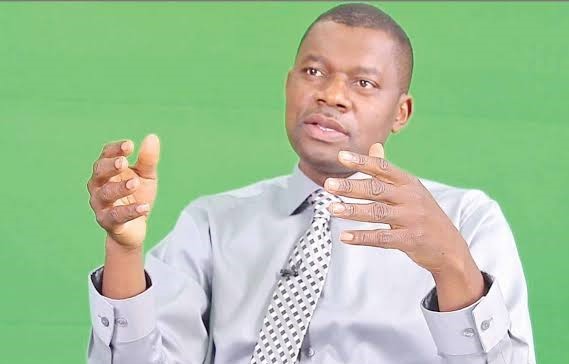By Rudolf Okonkwo
Don’t think I did not see the horror on your face from the moment you read the title of this column. Yeah! As if death will never happen to you. I will never die. You will never die.
I hear you.
Did you say God forbid? Did you pronounce that it is not your portion? “Come down, Holy Ghost fire,” you prayed. “Send it back to the sender,” you charged.
Are you done?
The question is not if but when. The hope is that it is later than sooner. But the truth is that we do not know. Our maker does not inform us of our expiration date. He does not stamp it on our forehead.
So what options do we have?
Well, it is part of what drives us. We want to leave a mark. We want to put down something for those we will leave behind. As mere mortals, we only do what we understand – we build houses for them to inherit and top up our bank accounts. That is the rationale behind our investments.
Because death comes when it will come, our plans are often not mature when the time comes. Sometimes, no matter how we try, we fall short of providing the security we desire for our dependents when we die.
The possibility of dying didn’t cross my mind until December 31, 2001. I was returning from Germany when snow and poor visibility over Logan Airport in Boston forced our plane to stay in the air for 45 minutes. After burning off excess fuel, it made an emergency landing in the dark. The dead silence in the plane, the muttered prayers, and the cheers at the end shook me up.
The next day, I went and bought a life insurance policy.
Before then, I believed Chris Rocks’ rant that “insurance is something you buy in case something bad happens. But if nothing happens, shouldn’t you get your money back?”
Unlike a car accident, which may or may not happen, death will surely happen. If we buy insurance to protect ourselves and loved ones in the case of a car accident, why shouldn’t we buy insurance against death – the most devastating accident of them all?
That is why black men are into playing the lottery. It is their life insurance. At places where such tickets are sold, lines are getting longer. And the agencies that issue those lotteries are working hard to create more attractive ones. They lure patrons with promises as outrageous as winning a million a week for the rest of your life. The chances of winning real money are one in fifty million. You have a better chance of being struck by lightning than winning big money in a lottery. You have a better chance of getting into Harvard Law School and being the president of the Harvard Law Review than winning the lottery.
The money black people spend each week on mega million, power ball, pick 5, pick 3, and on every new scratch ticket in town, if they spend half of it on life insurance, there will be less wailing at funerals. There is no reason the life of black people is not worth as much as the life of any other American. When they die, their bodies should be worth as much as those of other Americans whose bodies are worth twenty years of their income. If the generation of black men dying off today had used half of the money they spent playing the lottery to buy life insurance, our generation would be inheriting a substantial amount to help stabilize lives and make raising money for business ventures easy.
As a child, I once observed a funeral in my hometown, Nnobi. I was with my father as the widow of the dead man rolled on the floor, throwing herself against rocks. It was a horrific scene to behold as a child. After the spectacle, my father whispered, “It isn’t that she doesn’t know that the husband is gone forever; it is that she has no answer to what happens next.”
After death, what happens next is critical. Not the spirit world where the dead person goes; that is for the dead to figure out. The living has no hand in it. What troubles the living is what happens in the physical world they must continue to inhabit.
For Africans in America, one culture shock we experience is the reaction of people in America to death. Americans often come out on TV with a relaxed countenance to say that their loved ones died doing what they loved. They do not throw themselves on the floor and weep. Why is that? Is it because they understood death as a necessary end that must come when it would come?
It is not likely. African-Americans would react the same way to death as the rest of America if it were. But African-Americans respond closely to the way Africans react, which is that of despair and helplessness.
A Nigerian nurse on the med-surg floor of a hospital recently expressed her disgust with some family members’ attitude to her patient’s well-being. One family group keeps demanding the resuscitation of 90-year-old severely ill and non-responsive patients. Another family group asks for Do Not Resuscitate (DNR) and seems impatient with their 88-year-old grandparent. The first group wanted her patient alive at all costs so they could collect additional months of social security checks. The second group could not wait to collect their grandparent’s life insurance.
What would be the worth of your corpse?
Rudolf Ogoo Okonkwo teaches Post-Colonial African History at the School of Visual Arts in New York City. He is also the host of Dr. Damages Show. His books include “This American Life Sef” and “Children of a Retired God,” among others.

